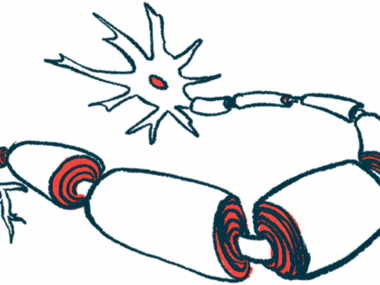How Do You Define an MS Cure?
Written by |

“Why aren’t researchers doing more to find a cure for multiple sclerosis?” “Why isn’t more effort and money devoted to this?”
I regularly read comments like these after I write a column about a new disease-modifying therapy (DMT) that’s either being tested or has just been approved. Some, like Multiple Sclerosis News Today columnist Jennifer Powell, have faith that a cure will come, but many others feel a cure is far, far away.
What if we already have a cure but just fail to see it? Professor Gavin Giovannoni suggests on The MS Blog that this might be the case. But to see it, we need to redefine “cure.” Or at least we need to refine how we define it.
What defines an MS cure?
To redefine cure, Giovannoni wrote, we need to accept the idea that “an MS cure doesn’t mean the restoration of lost neurological function; you can be cured of further autoimmune attacks on the nervous system, but the damage that is already done won’t necessarily be repaired as part of the cure.”
We also need to accept that “long-term remission” may be a better term than “cure” to describe the idea of MS going away and never coming back.
Long-term remission can be accomplished with some of our newest and most powerful DMTs, such as Lemtrada (alemtuzumab), Ocrevus (ocrelizumab), Mavenclad (cladribine), and hematopoietic stem cell therapy. Lemtrada has certainly slowed, and perhaps even stopped, my MS progression. Some of my symptoms have even improved a bit. My walking is a little faster, my concentration has improved, and I’ve stopped taking modafinil to treat my fatigue.
Has my MS been cured?
I’ve probably been considered as having NEDA-4 status for the past several years. That stands for “no evidence of disease activity” in four areas: no relapses, no progression, no MRI activity, and no brain atrophy. I can’t walk very far, I continue to have bladder issues, and my fatigue is much greater than a healthy person of my age. But my MS probably meets Giovannoni’s proposed definition of long-term remission. So, should I consider myself cured?
While you’re thinking about that, how would you answer the following three questions Giovannoni asked in his MS Blog post?
- Is it appropriate to use the word “cure” when discussing MS?
- Does talking about a cure for MS raise false hopes?
- Is long-term remission a better term than cure?
I’ll add a question of my own: Should we replace “cure” with “prevent”? Aren’t preventing and halting MS two separate outcomes? What do you think?
You’re invited to visit my personal blog at www.themswire.com.
***
Note: Multiple Sclerosis News Today is strictly a news and information website about the disease. It does not provide medical advice, diagnosis, or treatment. This content is not intended to be a substitute for professional medical advice, diagnosis, or treatment. Always seek the advice of your physician or other qualified health provider with any questions you may have regarding a medical condition. Never disregard professional medical advice or delay in seeking it because of something you have read on this website. The opinions expressed in this column are not those of Multiple Sclerosis News Today or its parent company, Bionews, and are intended to spark discussion about issues pertaining to multiple sclerosis.



Eleanor Whitney
This is sad but true. Neurological problems are so complicated. Too bad there is not brain transplants.
Leanne Broughton
After 23 years of great advancements in MS research I am still waiting for the cure. To me it now means no further progression and a recovery of many lost abilities. A few years ago I would have been content to stay where I was with milder symptoms. I am a glass half full person, unfortuneately, and I do not see this happening in my lifetime.
Ed Tobias
Thanks for sharing, Leanne.
I think we have a good chance of seeing more, and even better, treatments that will slow or halt progression. Unfortunately, I agree that a medication that will prevent MS is still far away.
Ed
Christopher
Hello Ed.
Halting and preventing are great terms in relation to MS instead of cure. I think one of the biggest problems is language, and that many of us confuse 'cure’ with stopping of symptoms AND reversal of damage. Unfortunately only the former is at all possible at this time with the therapies available. The most important objective is to arrest the relentless attacks on the CNS so that the accumulation of damage can still be somewhat mitigated by the body’s own repair mechanisms. If there’s too much damage from attacks then the body can’t keep up and disability progresses from neurodegeneration even after attacks have stopped. And that’s a big part of the confusion, that there are many drugs now capable of stopping or slowing down the attacks on the CNS, but disability continues from the deterioration process even after the disease has quit. We are unfortunately still quite far from being able to repair extensive damage and return lost ability. So an actual cure would pretty much look like NEDA in perpetuity, period.
Ed Tobias
Hi Christopher,
Well said. Thanks for sharing.
Ed
Carol L Thompson
I just read this: BioNTech Reports Breakthrough In Treating Multiple Sclerosis With Another MRNA Vaccine. Is this something to get excited about or is it bogus?
Ed Tobias
Hi Carol,
It's just a mouse study. So, I think "hopeful" is a better description than "breakthrough." Here's more:
http://multiplesclerosisnewstoday.com/columns/2021/01/26/ms-vaccine-mouse-study-caution/
Ed
Rob Mullins
Ed-
Thanks for your insight. I believe as far as prevention goes we can start by making sure our offspring have an adequate level of D3 running through their systems. Since i was diagnosed years ago i heard of a genetic connection and about the protection of vitamin d. I put my daughters on it and they still take supplements every day. So far, so good!
Ed Tobias
Hi Rob,
There's a lot of evidence that the vitamin D level can have an impact on MS. That could be why MS is more prevalent in parts of the world where there's less sunshine. I've been taking 2000 units of D3 each day for years, for whatever it's worth.
Thanks for sharing and I hope your daughters continue to dodge the MS bullet.
Ed
Dan Steeves
Good way of thinking about MS. Most diseases don't have cures - only treatments. Physicians treat patients and their diseases. Surgeons do offer cures for much of what they do: drain an abscess, cut out a cancer, mend a limb, replace a joint,remove a re-offending or failing body part,and stent or bypass a blocked artery to name a few.
Ed Tobias
That's an excellent way of looking at it, Dan. Even various cancers, for which surgery may be a part of the treatment, are rarely actually cured.
Thanks for taking the time to share with us.
Ed
Dave Uherek
I would like to have Neda for the past we years. I am glad you are not progressing Unfortunately I just worry about what will happen next. The Pharmaceutical industry is not helping a lot of us. 28 years have passed with nothing for spms. Most of us progress, however the Big Pharma does not. Thanks for the information anyway.
Ed Tobias
Dave,
Thanks for your comments. While there may be very little approved for SPMS several of the most effective DMTs are being prescribed for it anyway. I'd ask your nuro about whether one is appropriate for you, ignoring the label for your DX that's in your chart.
Ed
Jeanette Mckillop
Simalarly to what others described, I am in the NoMan’s land of having m.s. for many years
followed by remission for many years, but no cure - But I guess I can go with that while
still waiting for a cure.
Jeanette Mckillop
Ed Tobias
Hi Jeanette,
I'm glad you've been doing well because I fear a "cure" is still a long way away. However, I've just read some interesting information about the Epstein-Barr virus and its relationship to MS. And, there's an experimental drug that aims to kill EBV. So, maybe there is hope through that route. I'm going to try to write something about that in one of my upcoming columns.
Ed